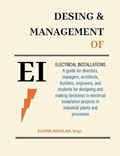This e-book delves into the importance of electrical design in industrial environments and serves as a guide for directors, managers, civil professionals, and electrical engineering students who are responsible for directing and making decisions regarding plant infrastructure design. It focuses on comprehensive electrical design to protect people and facilities and to enable sustainable long-term growth. The reliability of an electrical installation minimizes interruptions, reduces maintenance costs, and extends the lifespan of equipment. Furthermore, it aims to achieve well-planned electrical infrastructure to provide flexibility for future demands and to seize new opportunities without compromising efficiency or safety.
The author, with over 20 years of experience in designing and developing electrical networks in industrial plants and buildings, notes that many professionals and business leaders may find technical concepts difficult to understand. Therefore, the book aims to offer a holistic guide that not only addresses technical aspects but also fundamental principles and best practices in electrical network design and operation.
The book is intended for a broad audience, including architects, engineers, managers, and entrepreneurs, emphasizing that a solid understanding of electrical principles is essential for effective decision-making and success in any industrial setting.
The book explores everything from connection to the electrical grid to disturbance management, and how each segment of the electrical network interrelates to create a robust and efficient system. It highlights aspects such as the importance of reliable design, the use of backup generators, transformer selection, and efficient energy distribution. Additionally, it covers the importance of network segmentation, the implementation of monitoring systems, and the design of distribution panels, UPS systems, lighting, and automation.

